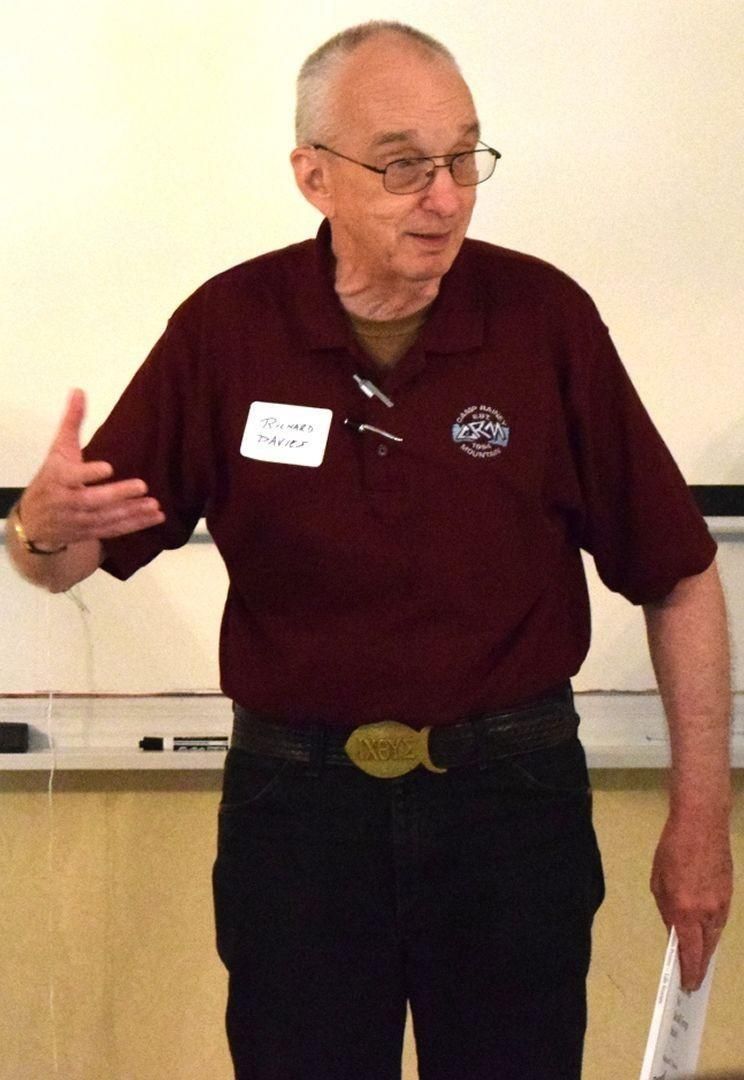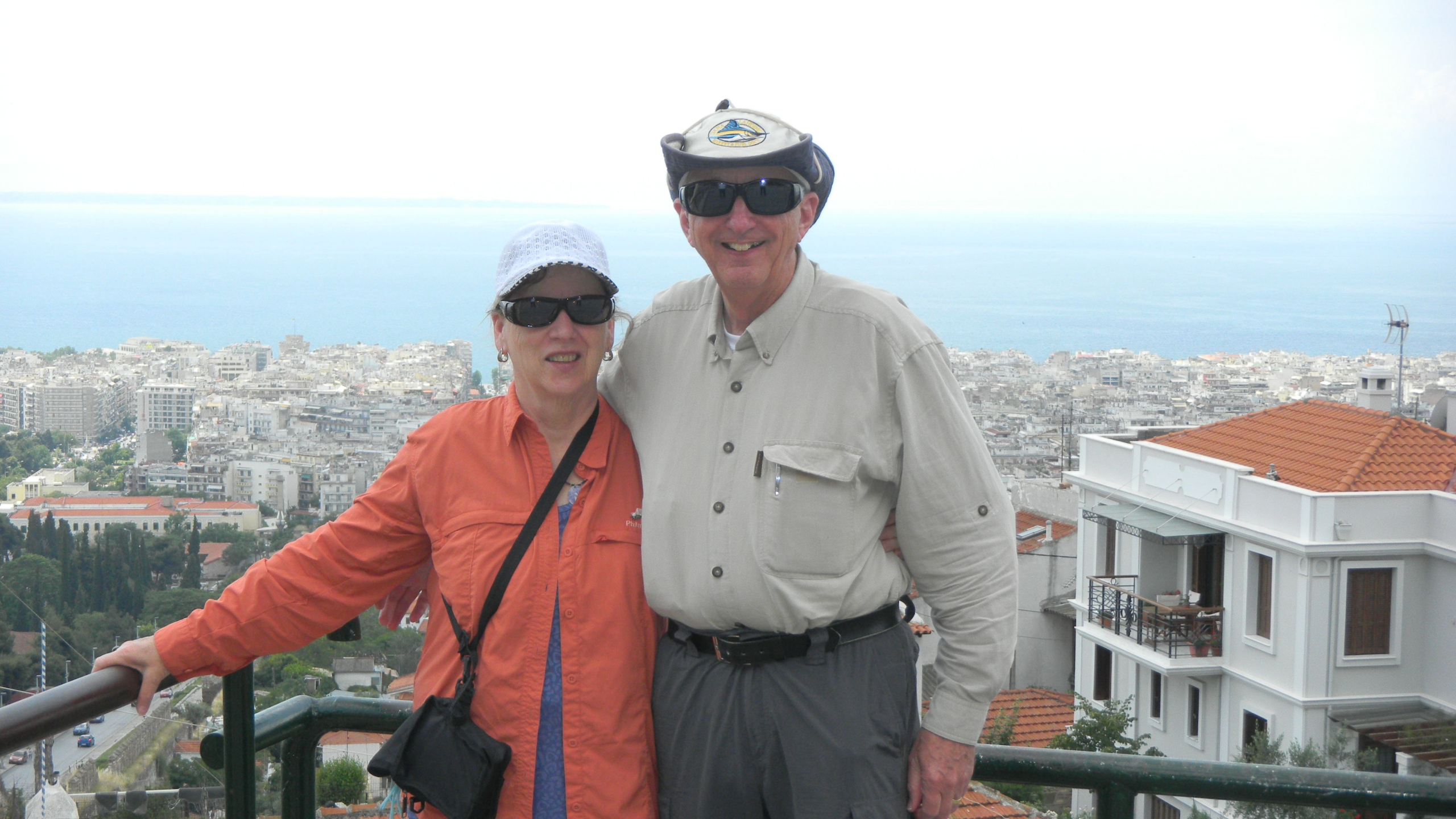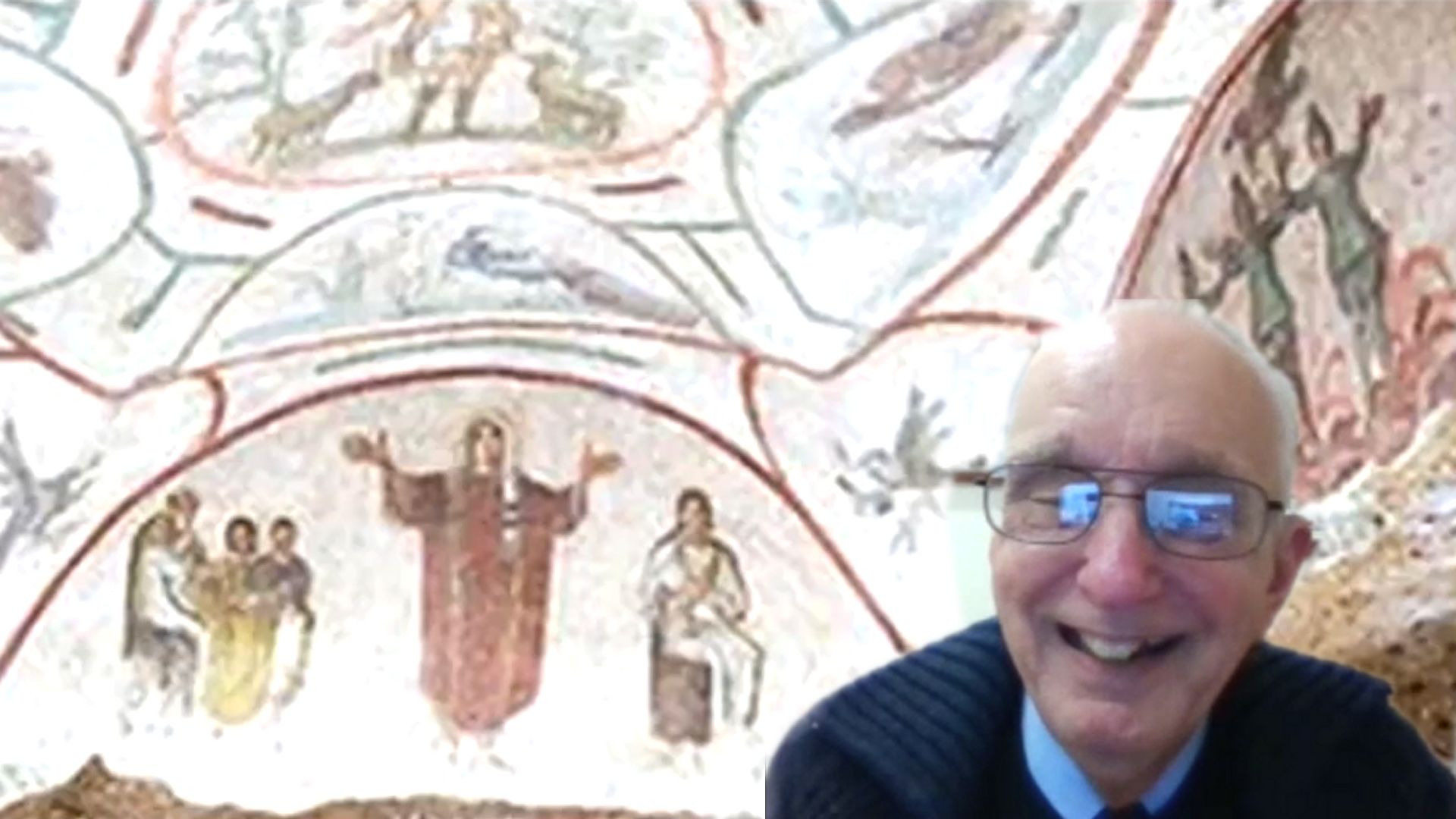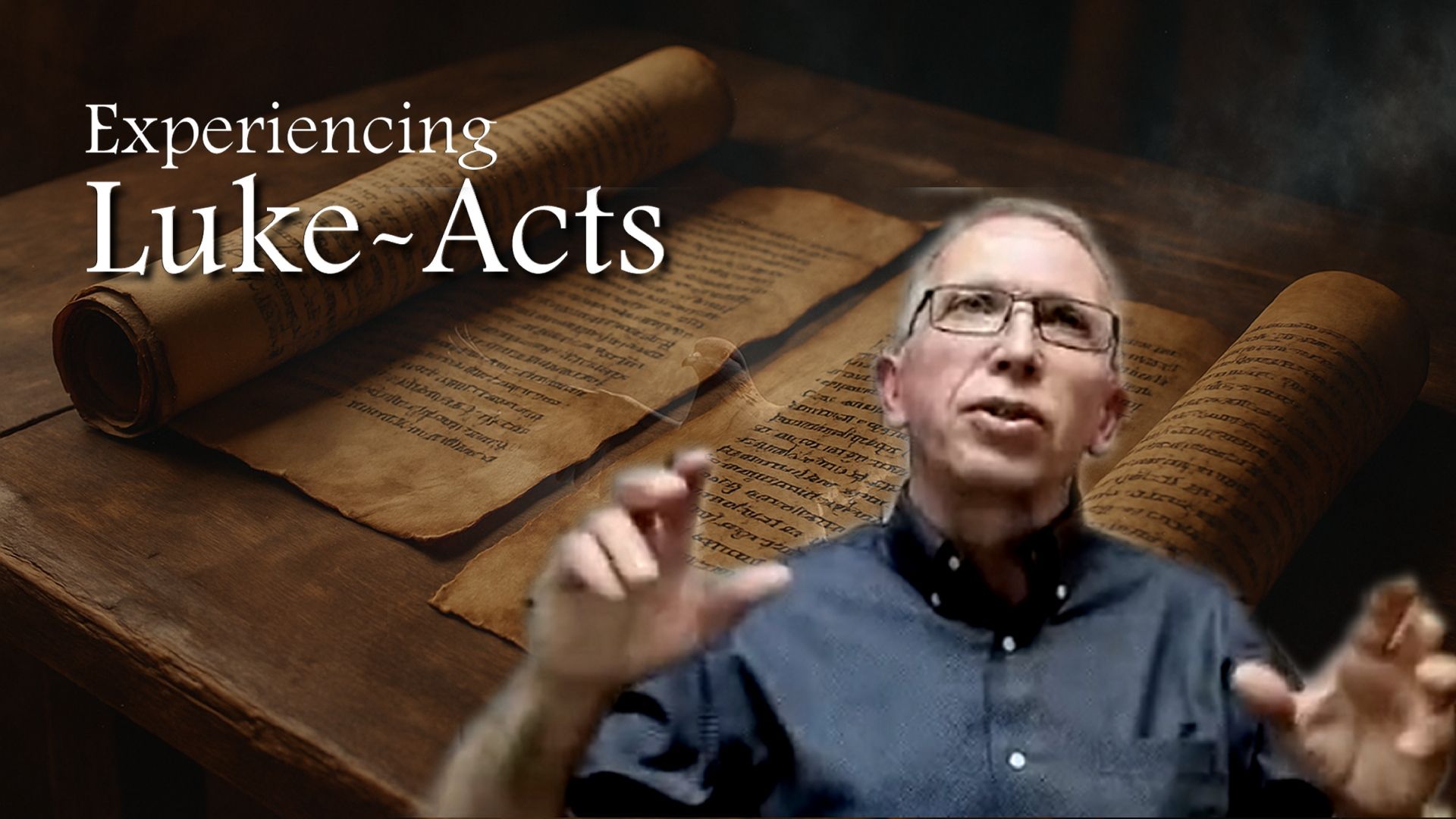
Purpose and Vision
of the Lecture Series
The Richard E. Davies Memorial Lectures on Biblical and Practical Theology are occasional lectures held at selected live and streamed locations. They honor a life devoted to rigorous engagement with the biblical texts and their faithful, lived expression in the life of the church. These lectures exist to keep together what too often drifts apart—serious theological work and the concrete practices of teaching, preaching, and pastoral leadership.
The lecture series reflects that conviction by drawing first from within the IABC community. Rather than relying on a traditional credential pipeline—where authority is assumed to flow primarily from degrees, institutional status, or external recognition—these lectures locate authority in formation, participation, and demonstrated capacity within the IABC learning community. Richard was deeply supportive of this approach and consistently encouraged the development of teachers and leaders from within our own seminars and study groups. The series is designed to give those voices space to articulate, test, and extend their work through sustained engagement, communal testing, and lived practice in service of the wider community. From time to time, the lectures may also welcome scholars, teachers, and practitioners from beyond IABC whose work resonates with this same commitment to biblical rigor and lived theological responsibility.
These lectures are not designed to freeze ideas in place, but to begin and extend a conversation—one that presses biblical interpretation into real-world discernment, challenges inherited assumptions, and equips leaders to think and act with clarity, courage, and humility.
At the heart of the series is remembrance, not nostalgia. Richard was a trusted colleague and a dear friend to many in this community, and he is deeply missed by all who knew him, worked with him, and learned from him. The Lectures seek to carry forward his commitment to careful reading, honest questioning, and theology that matters because it is lived.
Memorial Lectures
This planned, recurring series began the summer of 2025. We feel it is appropriate to include Richard's live sessions on ancient Rome from 2022 as a fitting introduction to the lecture series.


About Richard E. Davies
Richard Davies
November 10, 1941 — January 18, 2026
Areas of Teaching at IABC
--Archaeology studies
--Pauline Studies
--Early Church History
--Historical Theology
--Theological Studies
Education
PhD, Indiana University
STM, Christian Theological Seminary
MDiv, Garrett (-Evangelical) Theological Seminary
Personal Statement
Perhaps the most important thing for this group to know about me is that I consider myself an “ecumenical Christian.” So what does this mean? I take the general dictionary definition of “ecumenical.” My personal definition of “Christian” is “a person who takes the Bible seriously as scripture.” In this definition, “Bible” refers to the sixty-six books of the Protestant Bible, with the possible inclusion of the Apocrypha, as found in Catholic Bibles. At this point, it makes no difference whether one chooses the Catholic or Protestant canon. The words “serious” and “scripture” I leave undefined. (Every system requires undefined or “primitive” terms.) This does not mean that we don’t know what these words mean in general or that we can apply any random definition to them. Just as in mathematical set theory, the word “set” is undefined even though everyone knows, in general, what a “set” is, similarly, everyone knows, in general what “serious” and “scripture” mean, even though I refuse to propose a precise definition.
This definition of “Christian” means that regardless of whether one is “conservative” or “liberal,” “liturgical” or “free,” of whatever denomination, of whatever creed or of no creed, we can have a meaningful conversation. We might have a meaningful conversation with a non-Christian, but the chances of having a meaningful conversation are sharply reduced.
Of course I could write a book about all of this, but we are concerned with St. Paul. (I have chosen to refer to him as “St. Paul” out of respect and to make clear which Paul I am talking about. There is inevitable confusion with the city of St. Paul, Minnesota.)
The question is about how I developed a scholarly interest in St. Paul, and what my credentials are for sharing my scholarly insights.
I grew up in an Army family, moving constantly. Among other things, I attended three or four high schools (depending on what one counts as a “high school”). In the process, I attended many kinds of Sunday school, including my Grandmother’s little country church, a large urban Presbyterian church, and Sunday schools held in old barracks on Army posts, taught by weathered sergeants. Thus I come by my ecumenical identity honestly.

In college I pursued a B.S. in mathematics, thinking I might spend a career teaching the subject, but for many years I had felt nudges toward the ministry, and late in my college program I had a clear call, so I went to seminary. At the time I was worshipping and attending Sunday school at a Methodist church (before they were called “United Methodist”) so I went to a denominational seminary in the Chicago area, Garrett (now Garrett-Evangelical). One summer I went to a Chicago area Presbyterian seminary, McCormick, to study Greek. At Garrett I pursued the normal preparation for ministry course, but managed to take all of the courses offered by two stellar faculty members, Paul Hessert (historical theology) and Samuel Laeuchli (patristics).
I have been a United Methodist minister for more than half-a-century.
I later had the opportunity to do study at Christian Theological Seminary in Indianapolis (S.T.M.) and Indiana University in Bloomington (Ph.D.). Both of these degrees had to do with aspects of communication and communication theory. (If one claims expertise in “communication,” the proper rejoinder to one who taunts you for failing to “communicate,” is to point out that a basic principal of communication theory is that communication is prone to failure.)
A few years after completing my Ph.D., when I was employed as an ecumenical executive, I was invited to make a presentation that led me to write my first book, Handbook for Doctor of Ministry Projects: An Approach to Structured Observation of Ministry. (I am embarrassed to say that it is still in print, in spite of having been written before the age of personal computers.)
While studying at Garrett, I had written an extensive paper on the writings of Hendrik Kraemer, and in preparation for the paper I had read everything he ever published. I noticed that he had written a major book in 1938, but the rest of his books were written in the late 1950s and early 1960s. (In the meantime he wrote a number of significant articles.) The lesson I drew from this was that one who is in mid-career has no time to write books, and I took this as personal guidance.
Through the years after writing Handbook, I made a point of writing an article each year (mostly for the Journal of Biblical Storytelling), but made no attempt to write another book until I retired.
Before I retired, my wife made several mission trips to West Africa (doing work for which I was not qualified), and she wanted to take me there. We made plans, but they fell through, and we had to decide how to use our plane tickets. We decided to go on an independent three-week trip to Athens, Greece, and, among other things, went to see the ruins of ancient Corinth. When we got back, I started work on an audio-visual report on Corinth, and realized that there was too much to say, so I started researching and writing a book about Corinth and the Corinthian people in the mid-first century when St. Paul evangelized in the city. The beginning question in my head was why he was successful.
Once I finished that book, I began to ask a “clergy question.” St. Paul did well in the urban environment of Corinth. What about a rural environment? That would be Macedonia. I spent several years reading about Macedonia, and finally we were able to clear the way to spend about three weeks there. The Macedonia trip was not in any sense a vacation, but was an act of research. I visited every museum in any way related to St. Paul’s work in Macedonia. The next year I spent a week in London’s British Museum (my wife saw London, I saw the museum). Lessons from these trips fed a book called St. Paul in Macedonia: What the People Heard.
Since then, I have had a chance to visit three museums in Munich, Germany, the Vatican museums, and several museums in Rome, Italy, and lessons from these visits have led to two books, one of which has to do with St. Paul: Stories St. Paul Told, Almost Told, and Might Have Told.

We are living in an age in which anyone can become a scholar. Journal articles are well indexed by Google Scholar. One can read books and portions of books using Google Books. Digital photography means that one can visit museums and fully document the relevant exhibits for no more cost than the price of an inexpensive camera. By investing a couple of hundred dollars in software, one can professionally edit and lay out a book. Publish-on-demand services are available at no cost.
There are scholars who dismiss the importance of museum artifacts, preferring to rely totally on classical literature. I have found that travel and museum study is essential, because ancient authors are not always reliable. On the other hand, one must become familiar with ancient literature to provide perspective on the artifacts. Furthermore, one must read beyond the Bible to understand what the biblical authors took for granted. In particular, I have found that St. Paul had a major problem in confronting pagan religions, something most biblical scholarship has ignored. Museum artifacts make this very clear. Contrary to popular belief, people were not “tired” of the old gods.
Over the years, my varied experiences, along with my ecumenical perspective on theology, have prepared me for this retirement work. I am certain it has been God’s call, and I rejoice to be doing it.
The major lack in my scholarly enterprise is not having a significant opportunity to discuss my work with those who can challenge my conclusions and help me sharpen my work. Perhaps the “Coffee with Paul” group can help fill this void.

Richard Davies
--
Richard's Books
Memorial Service for Richard Davies
Held January 31, 2026 at https://marthaboaman.online.church.com
Richard E. Davies, age 84
November 10, 1941 — January 18, 2026




